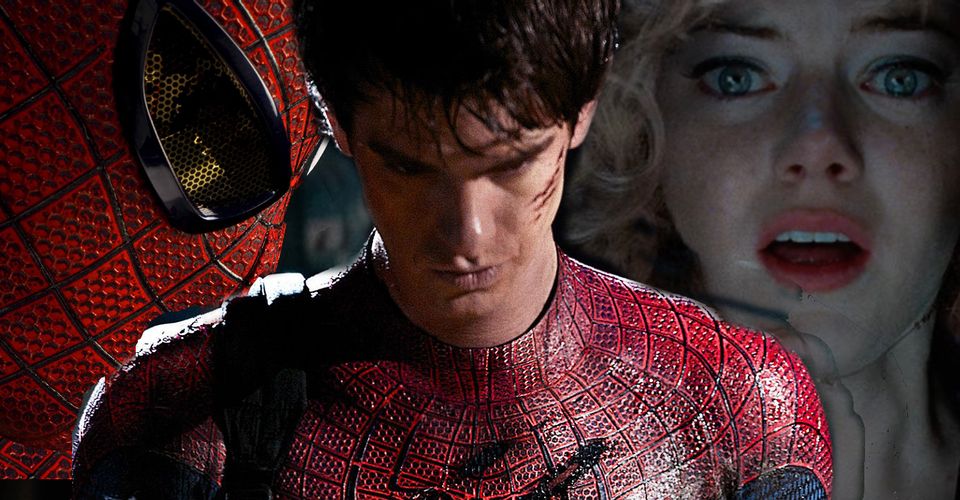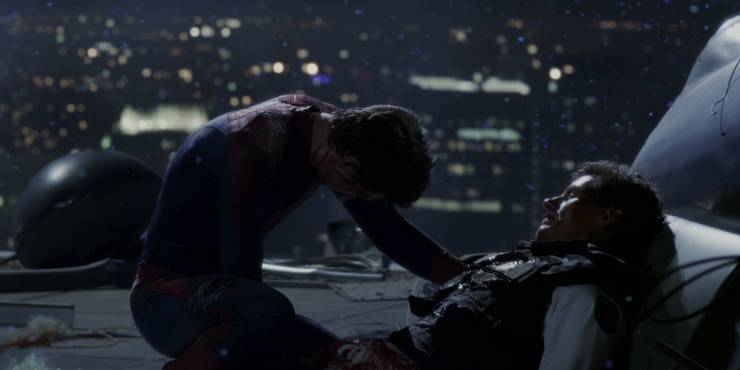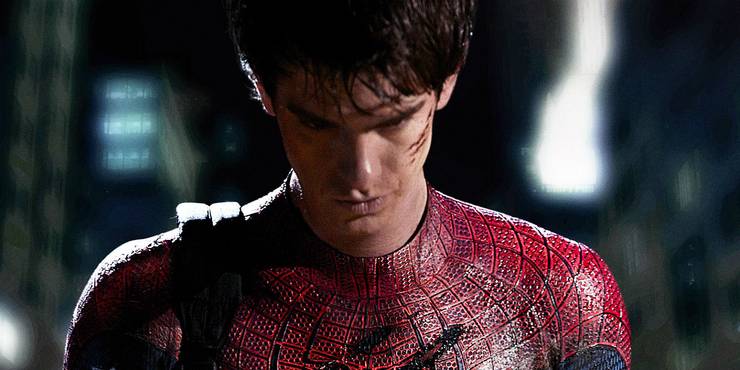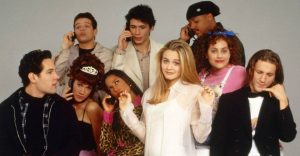10 Worst Things That Ever Happened To Andrew Garfield’s Spider-Man

The multiverse has cracked open, thanks to the events of Spider-Man: No Way Home, bringing the various multiversal variants of the Friendly Neighborhood Spider-Man closer than ever before. With the three generations of Spider-Man actors finally united, they were able to share their life experiences, including the traumas and pains they had suffered.
Though he only appeared in two films prior to No Way Home, Andrew Garfield’s Spider-Man may be the version of the character who suffered the most, with certain events driving him to become a more bitter, darker version of the beloved character.
Bullied In High School

Peter Parker and Flash Thompson have always had a (mostly) friendly rivalry in the comics, but their relationship is perhaps best known for Thompson’s relentless bullying toward Peter during their high school years. The Amazing Spider-Man brings this out more than other Spider-Man films, building up Peter and Flash’s rivalry.
Though this relationship would eventually be flipped on its head after Peter received the radioactive spider bite that granted him his powers, Flash’s bullying had a profound effect on Peter. After learning that he could now stand up to people like Flash, Peter began to use his newfound powers irresponsibly to get back at his high school bully, an attitude that would eventually lead him to further tragedy.
Giving Up On Spider-Man

After the tragic death of Gwen Stacy, Peter Parker gave up on his alternate identity as Spider-Man for some time, leaving the world to deal with its own problems. It was only after discovering Gwen’s full graduation speech that Peter returned to heroism, just in time to fight the Rhino.
For Peter, losing Spider-Man in his life was equivalent to losing a piece of himself. Yet, the immense guilt over Gwen’s death had led him to believe that he was incapable of saving people as he once had. The audience isn’t told exactly how long Spider-Man was missing in action, but it is hinted to have been over a period of several months. There is no telling just how profound an impact these months without Spider-Man had on the grieving Parker.
Failing Max Dillon

Before becoming a very different version of Electro than the one in the comics, Maxwell Dillon was, in Peter’s own words, “the sweetest guy.” However, after the accident that gave him his powers, Max became drunk by the spotlight and felt he had to take out the one person who got more attention than him: Spider-Man.
Though it ultimately wasn’t Peter’s fault that Max caved to his inner demons, there is no doubt that the Webhead felt some measure of responsibility for the supervillain’s descent into madness, which spawned plenty of chaos and injury around the city. Thankfully, Peter capitalized on his second chance to help Max upon their reunion in No Way Home, curing him of his powers.
Captain Stacy’s Death

Captain George Stacy might not have been Peter Parker’s favorite person, but he was the father of his girlfriend, Gwen, which made him family. Tragically, George sacrificed his life while helping Peter battle the Lizard, making him promise to leave Gwen out of his superhero endeavors before passing away.
The juxtaposition between Spider-Man’s brand of justice and George’s enforcement of the law was a focal point of the first Amazing Spider-Man movie. Though both believed in punishing criminals and protecting the innocent, they never saw eye-to-eye on how to do so until the final battle. Unfortunately, this first moment of true understanding between the two would also be their last.
Harry’s Betrayal

Harry Osborn was Peter’s best friend growing up until he was sent away by his father Norman. Upon his return, however, Harry was dying from the same illness that had killed his father. His desperation to survive led him to become the Green Goblin.
Peter was forced to watch as his friend descended further and further into madness, knowing that he couldn’t help him. In the end, Harry’s actions led to the death of Gwen Stacy, as well as several other innocents, forcing Peter to lock Harry up forever. Unlike James Franco’s version of the character, Harry gets no redemption arc, though his return in the canceled sequel, The Amazing Spider-Man 3, could have changed that fact.
Losing His Parents

The Amazing Spider-Man franchise spent a considerably larger amount of time dealing with Peter Parker’s parents, Richard and Mary Parker. In this version of the story, Richard and Mary are involved in a case of corporate espionage, which leads to their deaths in a plane crash after an operative tracked them down and attempted to assassinate them.
The disappearance of his parents was something that Peter never understood until his later years, after discovering old recordings his father had left him. For the years before, Peter had always had a nagging notion that he had been abandoned, an idea that no growing boy should have to face.
Giving Up On Peter

Andrew Garfield’s return in No Way Home was an absolute delight for fans, who were finally able to catch up with his version of Spider-Man after seven years of his absence. However, in the midst of conversation with Tobey Maguire’s Peter, Garfield reveals that he “doesn’t have time” for “Peter stuff,” perhaps indicating that he spends very little time as his civilian alter-ego.
Spider-Man has “given up” on Peter Parker several times in the comics, usually after suffering a terrible loss. To imagine just how much pain Peter must be in to devote himself solely to being Spider-Man makes his character all the more tragic. Hopefully, he will learn to balance his life once more and even “find his MJ” should his character ever return.
Ben’s Death

Martin Sheen’s Uncle Ben may be the best cinematic version of the character yet, but he was unable to meet the same tragic fate that Peter Parker’s beloved uncle always does. While searching for his nephew after he stormed out during a fight, Ben comes across an armed burglar, who shoots him dead in the street.
This moment is a focal point in the life of any Spider-Man, and Andrew Garfield’s was no different. To make matters worse, the man who killed his uncle proved to be the very same thief that Peter had encountered earlier that evening, but allowed to escape, making Ben’s death his responsibility.
Getting Bitter

After meeting with the alternate reality Peter Parkers, Garfield’s Peter reveals to them that, in the years after Gwen’s death, he had slipped in his resolve to be the Friendly Neighborhood Spider-Man, allowing himself to grow bitter and stop pulling his punches.
While Peter doesn’t elaborate any further about what exactly he meant by this, many have taken this statement to mean that his Spider-Man may very well have killed someone. Who that person may be remains unknown, but their possible death would surely weigh heavily on Peter’s conscience.
Gwen’s Death

Spider-Man may be a superhero swinging above the city on his amazing webs, but he is Peter Parker first and foremost, with people he loved and wishes to protect. Unfortunately for Peter, he isn’t always able to save the people he loves from dying. In the climax of The Amazing Spider-Man 2, Peter attempts to catch Gwen Stacy as she falls from a clock tower, only to be milliseconds too late to stop her plummet.
This moment, above all others, affected Peter the most. If he couldn’t protect the one person closest to him, then who could he protect? Gwen’s death caused Peter to give up on Spider-Man for a time, and, after returning to his superhero persona, eventually, stop pulling his punches. Even in No Way Home, Peter’s guilt over Gwen’s death remains painfully visible. This is the one tragic moment in his life that he may never truly recover from.
About The Author

















